
How to support your horse’s immune system
A strong immune system protects your horse against a host of outside invaders, including bacteria, viruses, and parasites. A properly...
» View Article
A strong immune system protects your horse against a host of outside invaders, including bacteria, viruses, and parasites. A properly...
» View Article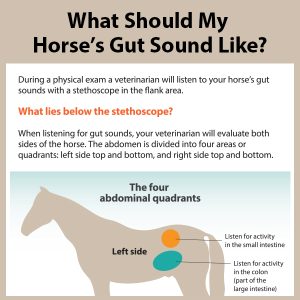
During a physical exam a veterinarian will listen to your horse’s gut sounds with a stethoscope in the flank area. What lies below the stethoscope? When listening for gut sounds, your veterinarian will evaluate both sides of the horse. The abdomen is divided into four areas or quadrants: left side top and bottom, and right side top and bottom.
» View Article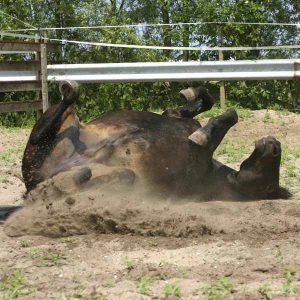
Gas colic is one of the more common types of colic and one of the least serious. It is caused...
» View Article
Horses with a busy lifestyle are at high risk for digestive upset. Limited grazing, larger grain meals, and frequent traveling...
» View Video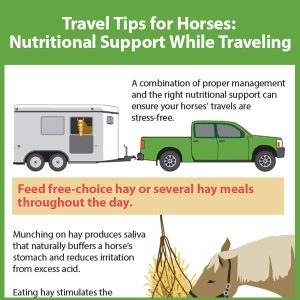
Travel Tips for Horses- Part 2: Nutritional Support While Traveling
» View Article
Neigh-Lox Advanced contains a proprietary blend of research-proven ingredients that work synergistically to maintain healthy equine GI tract tissues.
» View Article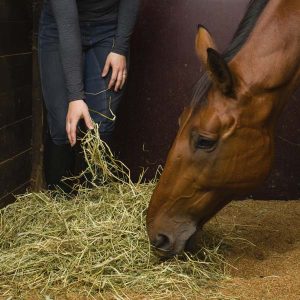
Does it really matter? The terms probiotic and prebiotic are showing up more and more often on feed bags and...
» View Article
Article re-posted with kind permission by Equine Guelph: http://equineguelph.ca/news/index.php?content=353 By Gayle Ecker, Director of Equine Guelph The fall is a...
» View Article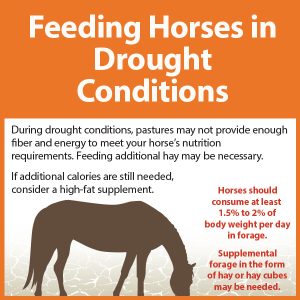
During drought conditions, pastures may not provide enough fiber and energy to meet your horse’s nutrition requirements. Feeding additional hay may be necessary. If additional calories are still needed, consider a high-fat supplement. Horses should consume at least 1.5% to 2% of body weight per day in forage. Supplemental forage in the form of hay or hay cubes may be needed.
» View Article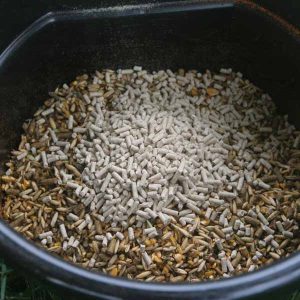
It can be hard to get a picky eater to consume enough calories to maintain optimal condition. Digestive aids, such...
» View Article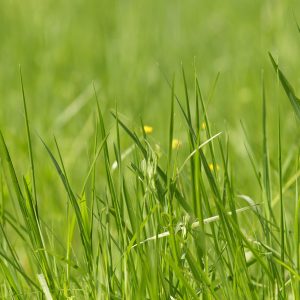
What is a fructan? Fructan is a type of sugar found in cool-season grasses. Instead of being digested in the...
» View Article
Jaime Irwin talks to you today about Neigh-Lox Advanced and why he uses it in his feeding program.
» View Article
Most of us know that horses can suffer from equine gastric ulcers syndrome (EGUS), a condition where horses develop ulcers...
» View Article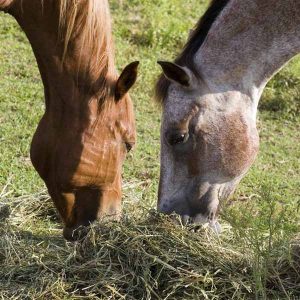
In every aspect of our lives we strive for balance. As owners and caretakers of horses we should also make...
» View Article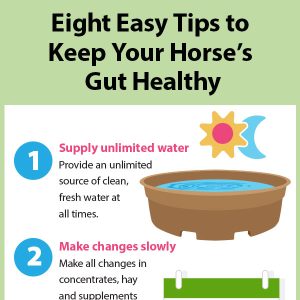
Click here to download a print version of this infographic. Text-only version of “Eight Easy Tips to Keep Your Horse’s...
» View Article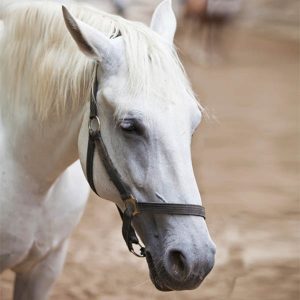
A scoop of grain and two fluffy flakes of hay in the morning. A scoop of grain and two fluffy flakes...
» View Article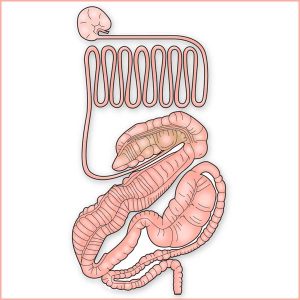
Bugs? What bugs? Horses are hindgut fermenters. In other words, the hindgut portion of your horse’s digestive tract contains millions...
» View Article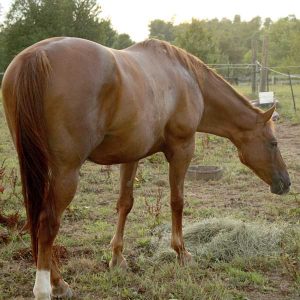
In Clarifying Carbohydrates Part I, we reviewed simple carbohydrates and in Clarifying Carbohydtrates Part II we looked at rapidly fermentable carbohydrates. This Nutritional Minute describes slowly fermentable carbohydrates (fiber) and discusses the concerns associated with all carbohydrates in the equine diet.
» View Article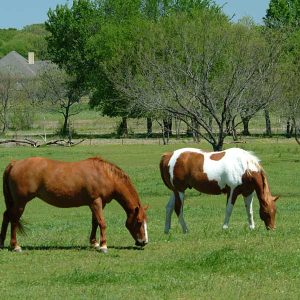
There are many types of carbohydrates in equine diets, including simple carbohydrates, rapidly fermentable carbohydrates, and complex, slowly fermentable carbohydrates. Your horse digests each type of carbohydrate differently. Some types of carbs are better for your horse than others. Click here for Clarifying Carbohydrates Part I for information on simple carbs. This time we will reviewing rapidly fermentable carbs.
» View Article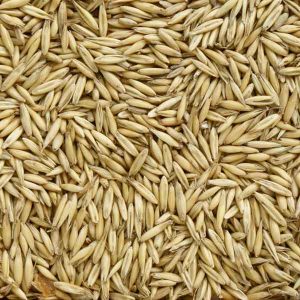
There are three different types of carbohydrates utilized by horses: simple sugars and starches, rapidly fermentable carbohydrates, and structural carbohydrates. This part of our series will deal with simple sugars and starches.
» View Article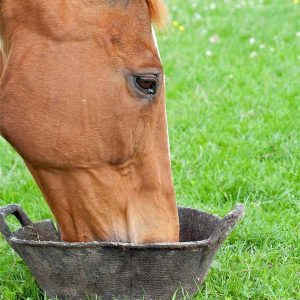
We have all heard that certain horses exposed to stressful conditions are at a higher risk of developing ulcers and...
» View Article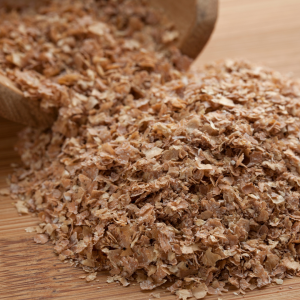
One of the most prevalent myths in the realm of horse nutrition today is that bran mashes are good for...
» View Article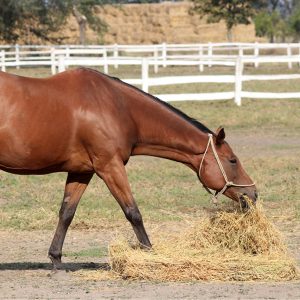
In his natural state, your horse would spend 16 to 17 hours each day roaming around and grazing on a...
» View Article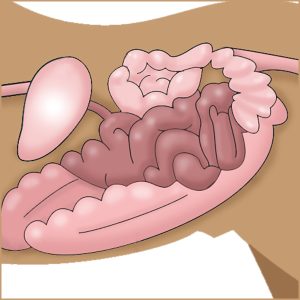
Your horse is a home The digestive tract of your horse is home to millions of microorganisms that aid in...
» View Article